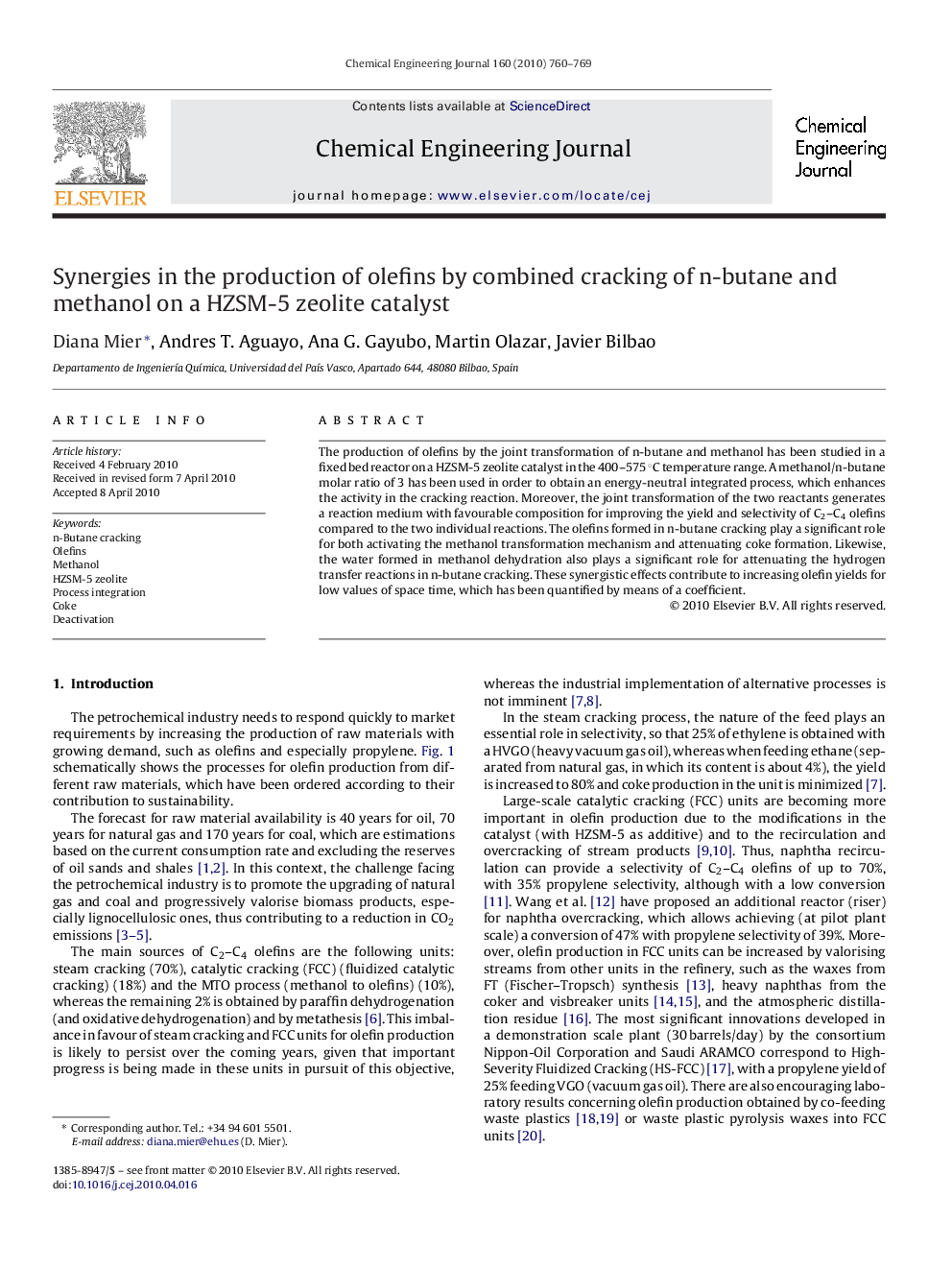| Article ID | Journal | Published Year | Pages | File Type |
|---|---|---|---|---|
| 151551 | Chemical Engineering Journal | 2010 | 10 Pages |
The production of olefins by the joint transformation of n-butane and methanol has been studied in a fixed bed reactor on a HZSM-5 zeolite catalyst in the 400–575 °C temperature range. A methanol/n-butane molar ratio of 3 has been used in order to obtain an energy-neutral integrated process, which enhances the activity in the cracking reaction. Moreover, the joint transformation of the two reactants generates a reaction medium with favourable composition for improving the yield and selectivity of C2–C4 olefins compared to the two individual reactions. The olefins formed in n-butane cracking play a significant role for both activating the methanol transformation mechanism and attenuating coke formation. Likewise, the water formed in methanol dehydration also plays a significant role for attenuating the hydrogen transfer reactions in n-butane cracking. These synergistic effects contribute to increasing olefin yields for low values of space time, which has been quantified by means of a coefficient.
